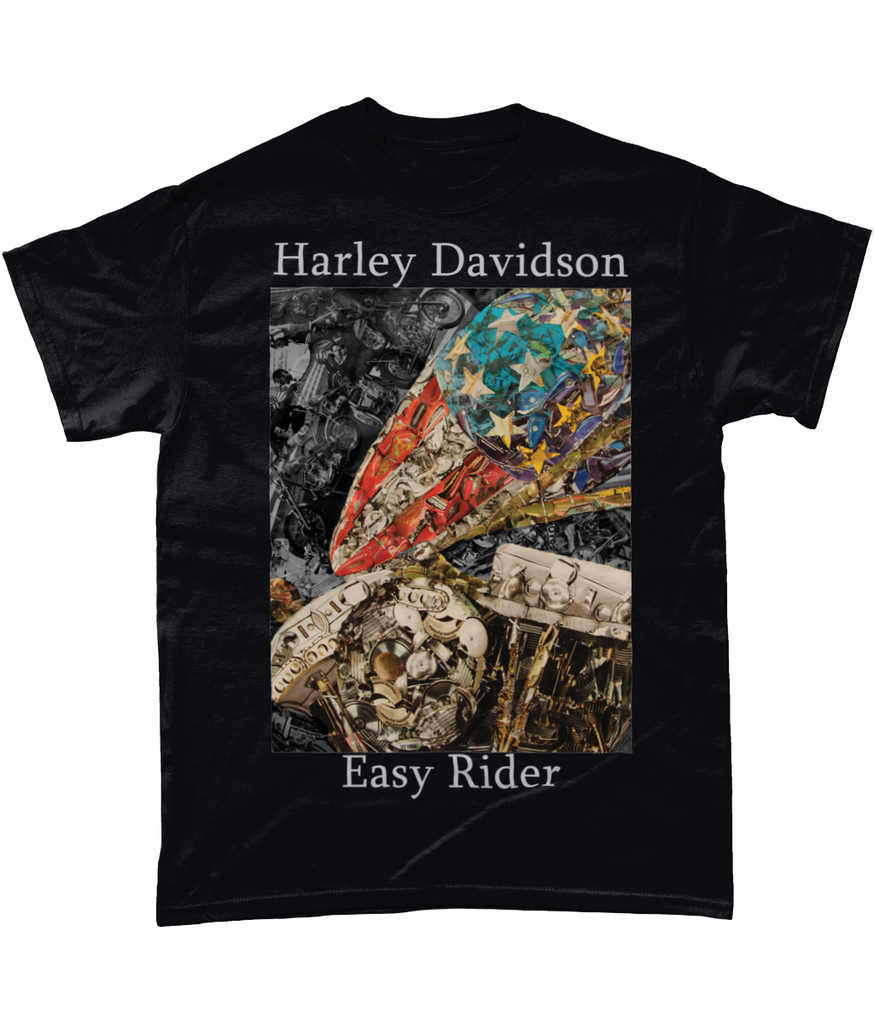
“If you look at animals which are dangerous in this respect, like the poison dart frog, they tend to be covered in high contrast colours. However, despite these questionable beginnings, Cole has shown that images with high contrasts between dark and light, repeated many times in a field of view (about three times per centimetre at arm’s length), can have a real impact on a person's body.Ī theory originally put forward by Cole, it proposes humans have evolved to be fearful of such patterns as they are usually seen on poisonous animals or food.
#Easy rider t shirt plus
Even its name (Greek for ‘boring holes’ plus ‘fear’) emerged from an internet forum away from the gaze of medical professionals.

It’s easy to be sceptical about trypophobia, a phobia that came to prominence through chatrooms in the early noughties. "Because we've just noticed this phenomenon, there is still quite a lot we don’t know.”īut what has been discovered so far? And can scientists explain why people hate these hole-riddled images? We dig into the issue below – alongside more pictures that some may find very uncomfortable. “This is essentially because nobody was aware of it until the internet developed and these images were shared in forums,” says Cole, who published the first scientific paper on the topic (with co-author Prof Arnold Wilkins) in 2013.

However, despite one in five people having severe trypophobia (double the estimated amount of people prone to claustrophobia), the disorder is remarkably under-researched.


 0 kommentar(er)
0 kommentar(er)
